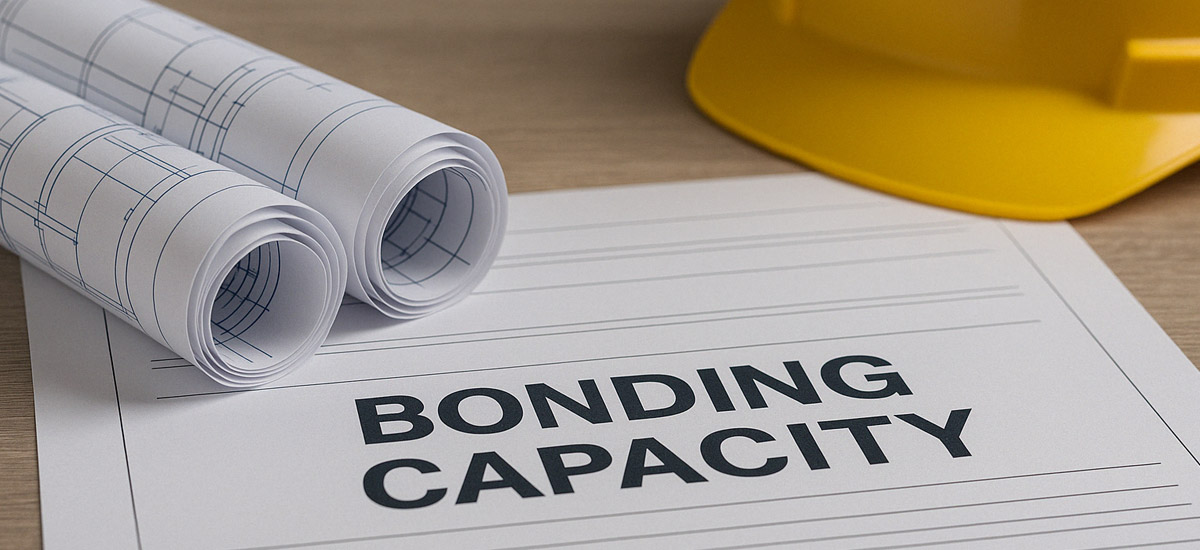In the world of contracts and procurement, you may have come across the term ‘bid bond’. It is a critical element in ensuring the smooth execution of contracts, especially in the construction and supply industries.
This article aims to offer a comprehensive beginner’s guide on what a bid bond is, its role in a contract, and its function as a security agreement.
Understanding the Concept of a Bid Bond
A bid bond is a common requirement in the tendering process across multiple industries, particularly in construction and procurement.
It functions as a guarantee given by a contractor, also known as the ‘bidder’, to the project owner. The essence of this guarantee is the bidder’s commitment to undertake the project if their bid wins (also referred to as ‘being low’, as in having the lowest bid price).
This bond serves as a form of security, providing assurance to the project owner that the bidder has both the financial capacity and the intent to accept the job for the price quoted in their bid.
This assurance is crucial as it protects project owners from potential losses, which could occur if a successful bidder decides to abandon the project or increase the project cost after winning the bid.
The bid bond also signifies the seriousness of the contractor towards the project. By providing a bid bond, contractors demonstrate their readiness to accept the responsibilities associated with the project, reinforcing their credibility and reliability.
If a contractor is awarded a job where a bid bond was required and they decide or are unable to continue with contract execution, the amount of the bid bond is then forfeit to the project owner. This would be paid by the bonding company issuing the bond, but that bonding company would then recover any lost funds from the principal / contractor responsible.
Understanding the Requirements for Obtaining a Bid Bond
The process of obtaining a bid bond involves meeting certain specific underwriting requirements.
These requirements are primarily designed to ascertain the financial stability and credibility of the contractor applying, thereby ensuring that they have the necessary resources to undertake and complete the project at hand.
Eligibility for a bid bond usually hinges on several key factors. These include the contractor’s financial position, their past performance on similar projects, and their understanding / expertise of the scope of the project they’re bidding on.
A thorough evaluation of these factors is typically carried out by the surety company issuing the bond.
In terms of costs, the price of obtaining a bid bond can vary. Factors influencing the cost include the total value of the contract, the perceived risk associated with the project, the contractor’s creditworthiness, and the terms set by the surety company.
Typically, a bid bond amount is requested to be a percentage of the bid amount. For instance, if a project is estimated to cost $500,000 and the required bid bond is commonly 10%, the contractor is then ‘on the hook’ for up to $50,000 in penalties should they be the low bidder, but be unable to continue with the contract in question.

Who Is Eligible for a Bid Bond?
Generally, any contractor who wishes to bid on a project requiring a bid bond is eligible to apply for one. However, the eligibility criteria can vary depending on the specific requirements set by the project owner and the surety company.
Most importantly, the contractor must demonstrate their financial strength and capacity to undertake the project. This is usually evaluated based on their corporate & personal financial strength, as well as past performance history.
Contractors with a strong track record of successfully completed projects and sound financial health are more likely to be considered eligible for a bid bond.
What are the Costs Associated with Obtaining a Bid Bond?
The costs associated with obtaining a bid bond depend on your bonding relationship and the specifics setup for what’s called a ‘bond facility’. This is your annual agreement which provides the capabilities for having any bid bonds, and other contract bonds you may need issued throughout the year.
Once a bond facility is setup, the cost of a bid bond is typically… Nothing! Wow, pretty good deal right? However, it’s important to note that an annual facility fee is typically in the $3,000 range, but can vary with specifics of your business, which industry you’re in, as well as the complexity of your underwritten risk. Any final bonds (Performance, Payment, or other bonds) issued after a successful tender is submitted would be an additional cost which is also outlined in a bond facility agreement.
It’s important for contractors to understand these costs and factor them into their bidding strategy.
This understanding can help ensure that they are adequately prepared to meet their obligations under the contract and protect their financial interests.
Get in touch with our bonding experts to get started with your bid bond requirements
How do I get a Bond Facility & Bid Bonds?
Embarking on the journey of securing a facility for bonds and bid bonds for the very first time can appear challenging. However, once the initial setup is complete, managing the facility becomes significantly easier with healthy bookkeeping practices in place.
Several bonding companies may have varying requirements for approval to process contract bonds. Generally, businesses should be prepared to process the following:
Company’s Financial Statements: Bonding companies typically would like to review the previous two year-end financial statements prepared by an accountant.
Review Engagement Statements are often preferred, but Notice-to-Reader (NTR) Statements / Compilation Engagement Report (CER) Statements can also be acceptable if that’s all that is available.
If a significant amount of time has passed since the previous year-end, businesses should be ready to provide internally prepared or interim statements as well. These include:
Balance Sheet: This provides a snapshot of the company’s financial health at a specific point in time, detailing assets, liabilities, and shareholders’ equity.
Profit & Loss (P&L) / Income Statement: This report outlines the company’s revenues, costs, and expenses over a period of time, providing insights into its profitability.
Aged Receivables Listing: This document lists unpaid customer invoices and unused credit memos by date ranges, enabling the company to determine which invoices are overdue for payment and what expected outstanding income is.
Aged Payables Listing: This report provides a detailed account of amounts that a company owes to its subs & suppliers, categorized by the length of time the invoice has been outstanding.
Work On Hand Report: Also called Work In Progress or ‘WIP’, this gives an indication of outstanding work in progress and the effort to complete it, providing insights into potential future income and current project performance.
Personal Net Worth Statement for Each Shareholder: When securing a bond facility for a business, it sometimes includes a personal guarantee along with the indemnity agreement.
The documents provide the bonding company with a clear indication of the personal financial strength of the business’s shareholders.
Contractor’s Questionnaire: This document helps the bonding company understand the business and ensures it can provide the necessary bonding support.
The questionnaire provides a conclusion of the company and its past, including previous work completed, ownership structure, and more.
Assistance is always available for completing these application documents, so businesses need not be overwhelmed at its first impression.
Initiating the application process promptly is the fastest way for a company to get bonded.

Why Are Bid Bonds Important?
The importance of bid bonds lies in their dual role of ensuring contractor reliability and protecting project owners. By confirming that contractors are financially capable of undertaking a project, bid bonds safeguard the interests of the project owner.
Moreover, they protect project owners from potential losses if a contractor fails to honor the terms of a contract set forth from the tender phase. This protection is crucial in maintaining the financial viability of projects. It’s important to understand that bid bonds don’t protect a project owner from the actual project performance itself, this is accomplished by a Performance Bond.
Lastly, bid bonds maintain the integrity of the bidding process. They discourage non-serious bidders, ensuring that only committed and capable contractors participate in the bid, thus making the process more efficient and reliable.
Understanding the Benefits of Using a Bid Bond
A bid bond offers numerous advantages, one of the most significant being the enhancement of a contractor’s credibility.
When a contractor is capable of providing a bid bond, it sends a clear message to the project owner that they are serious about their proposal and have the financial stability and capability to undertake the project being tendered.
This assurance of commitment and financial solvency boosts the contractor’s reputation, making them a more attractive choice for project owners while opening up new opportunities that are only available to bonded contractors.
Moreover, bid bonds level the playing field in the bidding process. By requiring all bidders to submit a bid bond, project owners ensure that only serious, capable contractors participate in the bidding process.
This requirement fosters healthy competition among bidders, leading to more competitive prices and better quality proposals.
Improving Contractor Credibility with a Bid Bond
The presence of a bid bond significantly boosts a contractor’s credibility. It acts as proof that the contractor is not only serious about their bid but also has the financial means to proceed with the project as proposed.
This reassurance can be particularly important in large projects where the financial risks are high.
Furthermore, a bid bond shows that the contractor is willing to provide a guarantee against their bid, further demonstrating their reliability and commitment.
A lot of the time, larger scale or civil contracts will have bid bonds as a requirement in order to participate in the tender, but they could also be useful as an optional tool. This extra assurance can make a significant difference in the project owner’s decision-making process, potentially tipping the scales in favor of the contractor providing the bid bond.
Increasing Competition Among Bidders Through Bid Bonds
Bid bonds play a crucial role in fostering competition among contractors. By requiring a bid bond, project owners discourage non-serious bidders from participating in the bidding process.
This requirement ensures that only competent and financially stable contractors submit bids, enhancing the quality of the bids received. Additionally, bid bonds ensure that all bidders are on a level playing field, as each bidder must provide the same form of financial guarantee.
This equality encourages more contractors to participate in the bidding process, leading to a broader range of bids for the project owner to consider. However, bond requirements also thin out unqualified bidders making the tender process a more fine tuned selection.
The use of bid bonds in the tendering process offers numerous benefits, from improving contractor credibility to increasing competition among bidders.
Both contractors and project owners stand to gain from the security and assurance provided by bid bonds. Therefore, understanding how to utilize bid bonds effectively is crucial for anyone involved in the bidding process.
Final Thoughts on Bid Bonds
In conclusion, A bid bond is a crucial security agreement that contractors need to understand. When bidding for a project, it is often mandatory to post a bid bond as a guarantee that the contractor will perform according to the terms of the contract.
This bond is essentially a backup or insurance policy for the project owner, offering them a level of protection in case a contractor cannot deliver on their end of the deal.
While most bid bonds are structured as a 10% bond amount, they can vary depending on the specifics of the project. Typical validity periods for bid bonds are 30, 60, or 90 days, but can be set to any term outlined for the tender in question. They are also frequently issued in conjunction with a Consent of Surety.
Not every company qualifies to have the capability of providing bid bonds, but understanding bid bonds is essential for any contractor looking to set themselves apart from the competition and bid on larger / government funded contracts.






